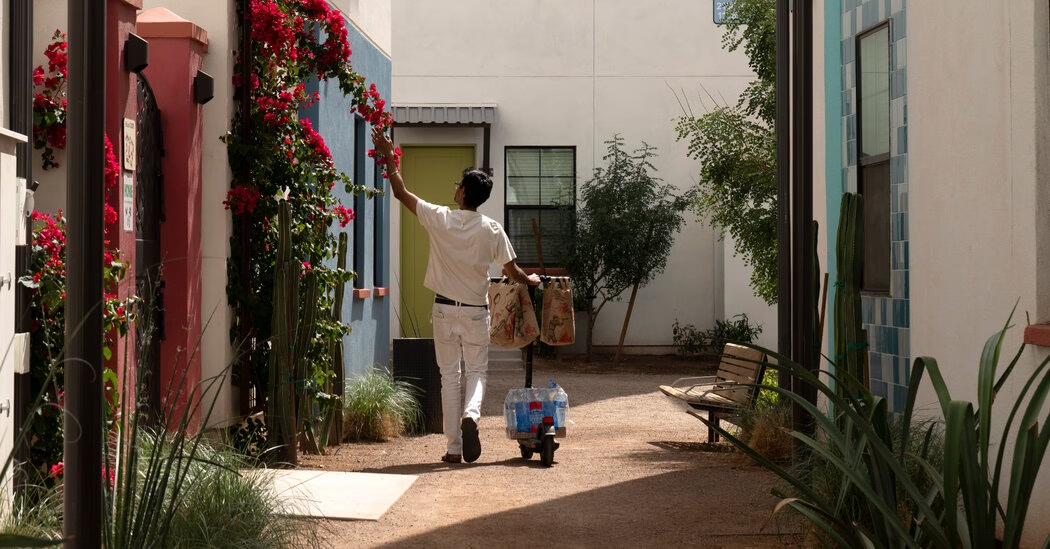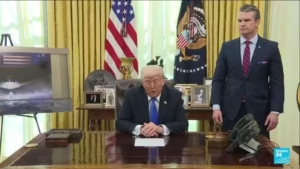Last year, Andre Rouhani and Gabriela Reyes toured Culdesac Tempe, a rental development outside of Phoenix that looked appealing with its walkways, boutique shops, and white stucco buildings. However, they were surprised to learn that there was no parking for residents. Despite this, the couple decided to move into Culdesac with their dogs and toddler, and they absolutely love it there.
Culdesac Tempe is the first neighborhood built with the intention of being car-free, modeled after towns in Italy and Greece. The developers of Culdesac want to offer a blueprint for walkable living in a car-centric state. Ryan Johnson, the CEO of Culdesac, believes that this lifestyle is better for the climate, health, happiness, and cost of living.
Although there is no parking for residents, there are other means of transportation such as the light rail system, buses, scooters, electric bikes, and ride shares. There are also 22 retail shops and a Korean market on site.
There are other car-free places in the United States, mostly on islands, but zoning requirements in most cities require parking spots for new developments. Culdesac Tempe was given an exemption from this requirement by the City of Tempe.
Edward Erfurt, chief technical adviser at Strong Towns, praises Culdesac Tempe for breaking the mold of modern development and promoting community resilience. The two- and three-story buildings are designed for the desert climate, with narrow pathways and native plants for cooling shade.
Alexandra Vondeling, the lead architect on the project, prioritizes the needs of pedestrians. The apartments range from studios to three bedroom units and are mostly leased.
Some residents were drawn to Culdesac because of its car-free mission, while others moved in regardless. Some residents even secretly own cars that they park off-site.
Sheryl Murdock, a postdoctoral researcher, chose to rent in Culdesac because she wanted to balance the carbon emissions from flying. Ashley Weiland and her husband moved in to give up the expense of having a car and ended up getting jobs at Culdesac. Electra Hug, who is blind, wanted to be close to public transit and have a sense of community.
Mr. Rouhani and Ms. Reyes borrow a car once a week for errands and mostly ride public transit with free passes provided by Culdesac. The pace of life at Culdesac is slower, with more opportunities for connection.
David King, an urban planning teacher, believes that Culdesac Tempe could inspire other developers to push for exemptions from parking requirements. Mr. Erfurt of Strong Towns agrees and believes that decoupling parking from development could address the affordable housing crisis, loneliness, and bring people closer to where they work.
Source: https://www.nytimes.com/2025/03/25/climate/car-free-arizona.html





